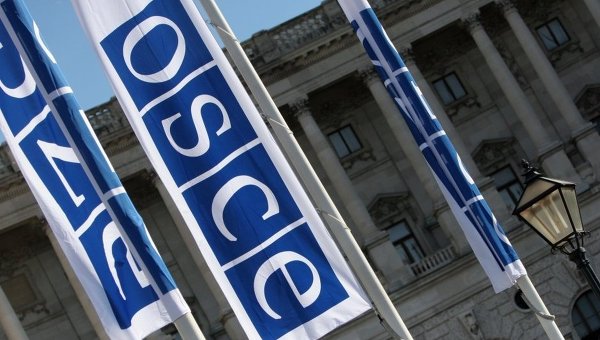OSCE MG: So-called referendum in Nagorno-Karabakh not to affect its status

By Rashid Shirinov
The OSCE Minsk Group co-chairs announced that they do not accept the results of the so called constitutional referendum on February 20 as affecting the legal status of Nagorno-Karabakh.
The issue was mentioned in a statement issued by the co-chairs of the OSCE Minsk Group, Ambassadors Igor Popov of Russia, Stephane Visconti of France and Richard Hoagland of the U.S., after meetings of February 16 with the Foreign Ministers of Azerbaijan Elmar Mammadyarov and of Armenia Edward Nalbandian, separately and then jointly.
Emphasizing that no countries, including Armenia and Azerbaijan, recognize Nagorno-Karabakh as an independent and sovereign state, the co-chairs stressed that the results in no way prejudge the final status of Nagorno-Karabakh or the outcome of the ongoing negotiations to bring a lasting and peaceful settlement to the conflict.
Earlier, Azerbaijan’s Foreign Ministry announced that this provocative step, as well as Armenia’s attempts to change the name of the Nagorno-Karabakh region, the integral part of Azerbaijan, is yet another clear manifestation that Armenia is not genuinely interested in seeking a political settlement of the armed conflict.
Azerbaijan and Armenia for over two decades have been locked in conflict, which emerged over Armenian territorial claims. Since the 1990s war, Armenian armed forces have occupied over 20 percent of Azerbaijan's internationally recognized territory, including Nagorno-Karabakh and seven adjacent regions. The UN Security Council has adopted four resolutions on Armenian withdrawal, but they have not been enforced to this day.
The co-chairs discussed with the ministers the current situation along the line of contact and the Armenia-Azerbaijan border. They reiterated that there is no alternative to a peaceful solution to the conflict and that war is not an option, and called upon the sides to exercise restraint on the terrain as well as in their public communications and to prepare their population for peace and not for war.
The Minsk Group urged the sides to adhere strictly to the 1994/95 ceasefire agreements that constitute the foundation of the cessation of hostilities. They recalled the May 2011 joint statements of their Presidents in Deauville emphasizing that the use of force would only bring more suffering and devastation and would be condemned by the international community.
The co-chairs also shared their views with the ministers on the steps which should be taken toward implementing decisions from the 2016 summits in Vienna and St. Petersburg aimed at stabilizing the situation in the conflict zone.
The Minsk Group stressed to the ministers the need to demonstrate greater flexibility and to resume comprehensive negotiations on reaching a lasting settlement as soon as possible.
The foreign ministers, in turn, reiterated their commitment to strictly observe their international humanitarian obligations including those of the Astrakhan Declaration of October 2010 issued by the Presidents of Armenia, Azerbaijan, and Russia.
The co-chairs also said they plan to travel to the region in March.
Meanwhile, Azerbaijan’s Permanent Mission to the OSCE has raised the issue on Armenia’s intention to hold an illegal “referendum” in the occupied Azerbaijani territories during the OSCE Permanent Council meeting.
---
Rashid Shirinov is AzerNews’ staff journalist, follow him on Twitter: @RashidShirinov
Follow us on Twitter @AzerNewsAz
